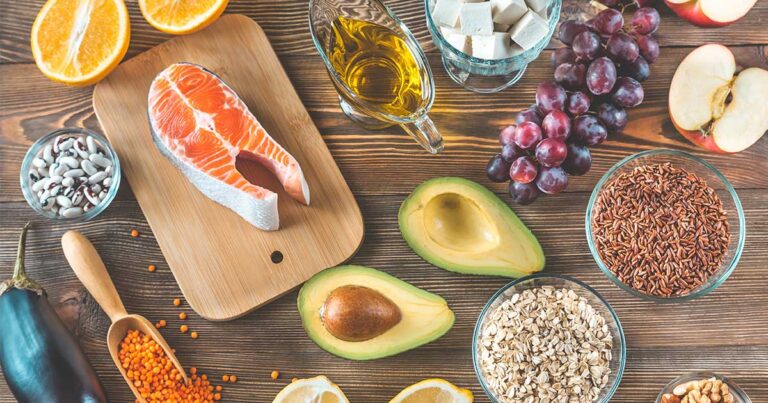- Now 2 Locations to Choose From!
- (727) 819-9107
- sabp@tampabaysurgicalgroup.com

Cholesterol Lowering Foods

Let’s face it: over the holiday months, Americans tend to overindulge in comfort foods and tasty treats. Traditional holiday foods are not great for lipid balance, blood sugar, or weight loss. It is so easy to give in to all the rich and delicious foods simply because of the uptick in how often we are exposed to them. Our lunch room has more food platters, which our wonderful patients give us as thank-you gifts. There are many more parties and gatherings during this time as well. I frequently tell my patients that it is not always what we ARE eating that is the problem. Often, it is what we are NOT eating in addition to that. While portion control is always an important consideration, instead of being hard on yourself for what you could not avoid, focus on including the foods supporting your health goals.
For those looking to keep their total cholesterol in check, consider these beneficial foods that support lipid balance.
- Fish high in Omega 3 fatty acids: Cold water fatty fish, i.e., salmon, tuna, trout, mackerel, herring, and sardines. Plant sources of omega-3 fatty acids are chia seeds, flax seeds, walnuts, hemp seeds, and algal oil. The plant foods will contain less Omega 3’s than the fish sources. 2-3 (4oz.) servings/week is recommended for adequate Omega 3 intake.
- High-fiber foods like oats, brown rice, quinoa, beans, Brussels sprouts, and pears. The American Heart Association recommends 25-30g of fiber daily from food.
- Healthy fats from avocados, olive oil, nuts, and seeds. One tablespoon of fat per meal is recommended.
- Avoiding trans fat or hydrogenated fat while minimizing saturated fats from animal products can also be helpful. Many of these fats are found in fried, packaged, and processed foods.
Shop Our Nutritional Products

Damian Bramer, Nutritionist
Damian earned her bachelor’s in nutrition science from UC Davis, California and is a certified nutrition consultant. She provides nutrition guidance and education for people who suffer from a wide array of conditions such as autoimmune disease, degenerative diseases, mental illnesses, diabetes, cancer and most recently obesity. She has also provided support for specialty groups such as athletes, adolescents, and the elderly.
She believes the best way to maintain good health is to adopt eating and lifestyle habits that are sustainable for the long term. These habits should not only be manageable but enjoyable to you as well. They should support your individual energy requirement, optimize your digestive health, lower inflammation, and keep your blood sugar balanced.
Strengthening the body’s systems and improving the quality of life with whole foods nutrition is the common goal for all her patients.
